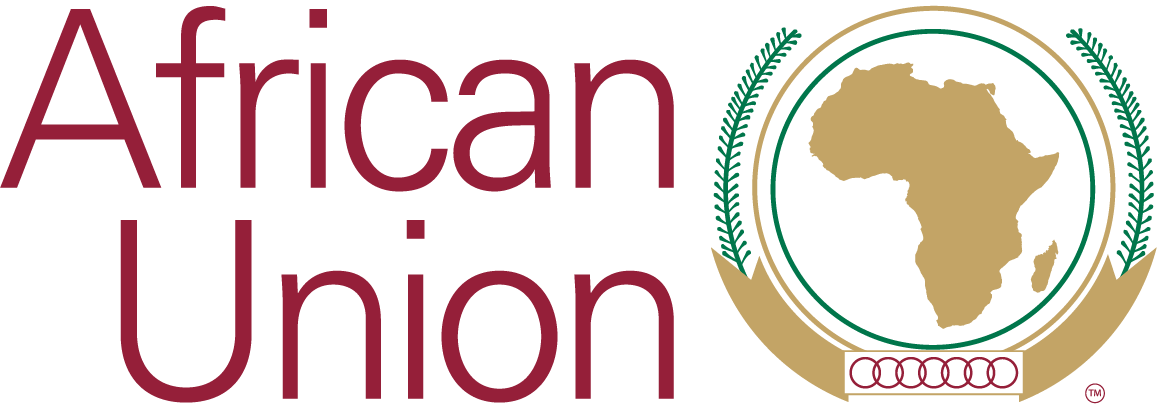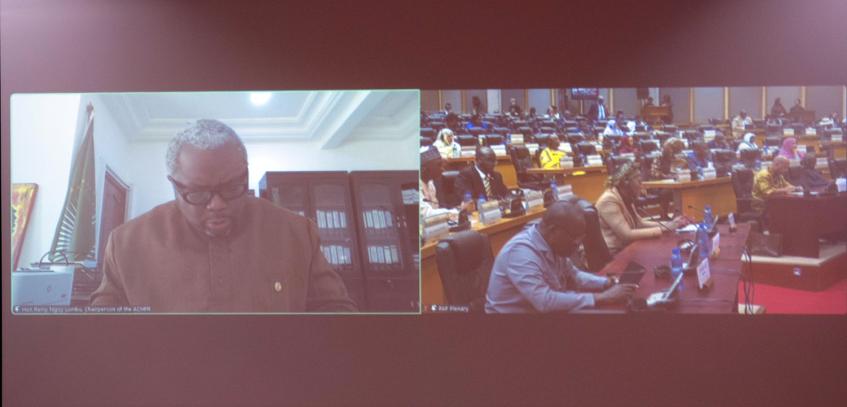Current human rights trends and priorities in Africa
By Rémy Ngoy Lumbu
Chairperson of the African Commission on Human and Peoples’ Rights
TRENDS:
- Positive aspects:
- Creation of the Continental Free Trade Area;
- Mobilisation of young people against poor governance in certain countries;
- Adoption by the African Union of instruments for the protection of the rights of individuals, drafted under the leadership of the African Commission, in particular the Protocol to the African Charter on Human and Peoples‘ Rights on the Rights of Citizens to Social Protection and Social Security, adoption of the Protocol to the African Charter on Human and Peoples’ Rights relating to specific aspects of the right to a nationality and the eradication of statelessness in Africa by the African Union;
- Recent entry into force of the Protocol to the African Charter on the protection of the Rights of Older Persons and the Protocol on the Rights of Persons with Disabilities in Africa;
- The trend towards abolition of the death penalty on the continent and observance of a moratorium on executions in most States parties;
- Ongoing AU reforms for greater effectiveness and efficiency;
- Adoption of Agenda 2063 which sets out the broad aspirations of “the Africa we want”, with a plan for assessing progress made in its implementation;
- Prohibition and criminalisation of practices harmful to girls, in particular female genital mutilation and child marriage in most countries, etc.
- Areas of concern:
- Continuing deterioration of the security situation, resulting in massive human rights violations, war crimes, migratory flows and forced displacements, food insecurity and health crises:
- Persistence of terrorist attacks in the Sahel region;
- Protracted armed conflicts in Sudan, Somalia, Eastern DRC, the Amhara region of Ethiopia and the Far North region of Cameroon;
- Inter-community conflicts between livestock breeders and farmers in several countries;
- Political instability due to unconstitutional changes of government (Gabon, Niger, Mali, Burkina Faso and Guinea);
- Persistence of sexual violence, gender-based discrimination and the low rate of women's participation in decision-making bodies;
- Restrictions on freedom of expression, association and assembly;
- Arbitrary arrests and detentions and persistent attacks and reprisals against human rights defenders, journalists and other media professionals;
- Crackdowns and excessive use of force on demonstrators are still widespread on our continent;
- The tragedy of the numerous migrants who have gone missing in the Mediterranean Sea or off the coast of Africa, or who have died on migratory routes;
- Persistence of torture and ill-treatment in prisons and places of detention;
- Prison overcrowding;
- Respect for economic and social rights remains a major challenge for the continent:
- Youth unemployment (60% of the population are under 25);
- Lack of or inadequate basic social infrastructure (schools, health centres, etc.)
- Exploitation and inequitable distribution of resources;
- Corruption and its impact on the development of our countries;
- The effects of climate change: the recent devastating floods in East Africa (Burundi, Kenya, Tanzania, Somalia and Chad)
- Low rate of ratification of regional and international human rights instruments;
- Low rate of implementation of decisions adopted by human rights bodies;
- Interferences with the independence of the judiciary;
- Sham democracies: Lack of confidence in electoral commissions and systematic challenges to election results, absence of the rule of law, a stranglehold by the Executive on the other branches of government, etc. The consequence is the increase in coup d'états, often with popular support.
- Dependence on external financing: Donors have their own priorities which they pursue through the projects they fund;
- Dependence on foreign expertise in many areas, including mining, major construction projects, etc.
- Continued enforcement of the death penalty in some African countries. I would like to take this opportunity to commend and thank the PAP for its considerable support. In a resolution dated 5 July 2024, it expressed its commitment to working with the Commission and all other stakeholders to facilitate the adoption of the draft protocol by the AU policy organs. The draft text has been effectively reintroduced into the approval circuits and should in principle be considered shortly by the Specialised Committee on Justice and Legal Affairs during its 10th Ordinary Session scheduled to take place in November/December 2024.
PRIORITIES
States are in a better position to propose priorities. As a suggestion, the following areas should be prioritised at national level:
- Addressing the causes of armed conflict and terrorism through a human rights-based approach
- Combating malnutrition
- Improving governance, transparency and accountability
- Ensuring independence of the judiciary by avoiding interference from the Executive or the Legislative branches in the administration of justice. Such authorities should not be involved in the Supreme Council of the Judiciary or managing the careers of magistrates.
- Establishing credible and transparent electoral commissions (not controlled by the ruling party)
- Increasing the participation of women and young people in decision-making bodies
- Designing school curricula that meet the needs of the countries concerned (in particular development of the agricultural sector, food processing and preservation, exploration and processing of raw materials, energy production, manufacturing of medicines, etc.).
- Achieving greater economic independence from former colonial and other powers: Financing 100% of national and AU budgets,
Cooperation between African countries with a view to processing raw materials in Africa and by Africans, increasing trade between African countries, trading in national currencies, implementing major projects such as hydroelectric dams, etc.
- Ensuring that National Human Rights Commissions are independent and adequately resourced to carry out their work;
- Promoting a strong civil society: protection of journalists and human rights defenders against reprisals








